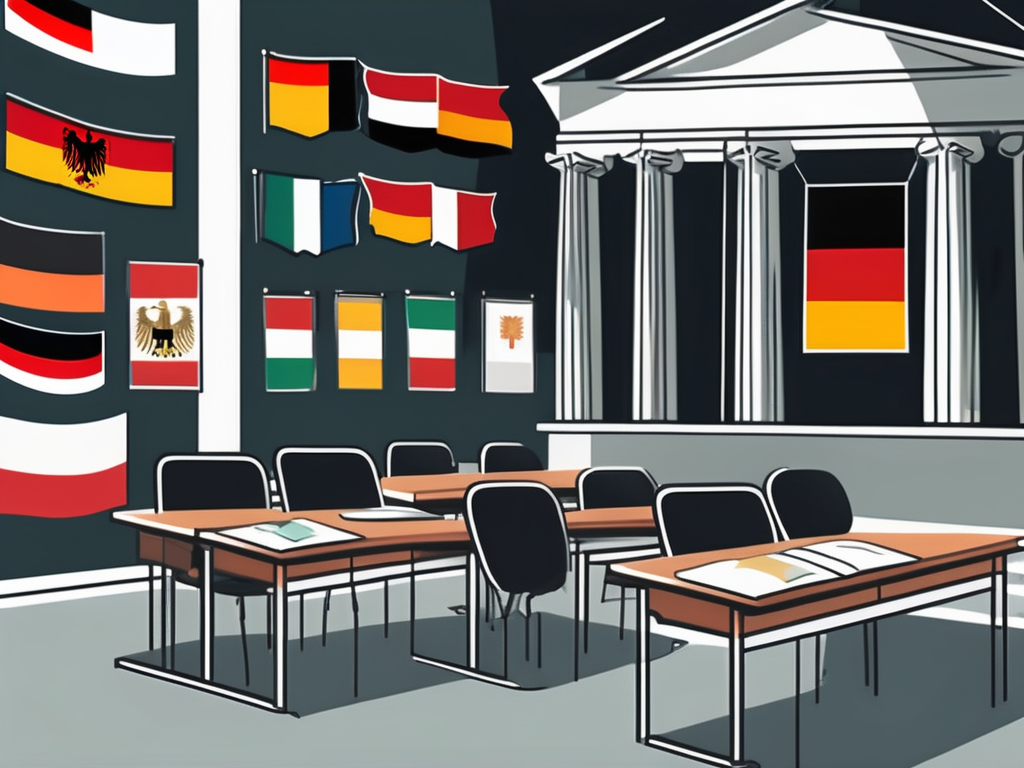Essential Qualifications for Teaching in International Schools in Germany

The realm of teaching in international schools is a rewarding and enriching career path. It offers the opportunity to immerse oneself in a new culture, learn a new language, and broaden one’s horizons. Germany, with its rich history and diverse culture, is an attractive destination for educators worldwide. However, to secure a teaching position in an international school in Germany, certain qualifications and skills are essential. This blog post will delve into the key qualifications and skills required, and how to acquire them.
Academic Qualifications
First and foremost, the academic qualifications form the bedrock of any teaching career. They are the foundation upon which your teaching skills and knowledge are built. In Germany, as in most countries, a bachelor’s degree is the minimum requirement for teaching. However, the field of study can vary widely, depending on the subject you intend to teach.
For instance, if you aim to teach English, a degree in English, Literature, or a related field would be beneficial. Similarly, for teaching Mathematics, a degree in Mathematics or a related field would be advantageous. It’s akin to a chef specialising in Italian cuisine; having a deep understanding of Italian culture and culinary traditions would naturally enhance their cooking skills.
Bachelor’s Degree
While a bachelor’s degree is the minimum requirement, it’s important to note that not all degrees are created equal. Some are more relevant and desirable for teaching positions than others. For example, a Bachelor of Education (B.Ed) degree is highly sought after as it provides comprehensive training in teaching methodologies, classroom management, and curriculum development.
It’s like having a Swiss Army Knife in a survival situation; it equips you with a wide range of tools and skills to navigate the challenges of the teaching profession. However, if you don’t have a B.Ed degree, don’t despair. Many international schools in Germany also accept degrees in the subject you wish to teach, provided you also have a teaching certification.
Teaching Certification
A teaching certification is another crucial academic qualification. It’s a testament to your ability to teach and manage a classroom effectively. In many ways, it’s like a driver’s license for teachers; it shows that you have the necessary training and skills to ‘drive’ a classroom.
There are various types of teaching certifications, such as the Postgraduate Certificate in Education (PGCE) in the UK, or the Teacher Certification Program in the US. The type of certification required may vary depending on the curriculum followed by the international school. Therefore, it’s essential to research the specific requirements of the schools you’re interested in.
Language Proficiency
Language proficiency is another key qualification for teaching in international schools in Germany. While the medium of instruction in most international schools is English, having a basic understanding of German can be a significant advantage. It’s like being a tourist in a foreign country; knowing the local language can greatly enhance your experience and interactions with the locals.
Moreover, it can help you communicate more effectively with parents and school staff, understand and navigate German bureaucracy, and integrate better into the local community. There are various ways to learn German, such as online courses, language schools, or immersion programs. The Common European Framework of Reference for Languages (CEFR) provides a guideline for language proficiency levels, and a level of B1 or B2 is generally sufficient for teaching in international schools.
Experience
Experience is often the best teacher, and this is particularly true in the field of education. Previous teaching experience, especially in an international school setting, can significantly enhance your chances of securing a teaching position in Germany. It’s like a seasoned sailor navigating the high seas; their experience and knowledge of the waters enable them to steer the ship safely and effectively.
Moreover, experience can demonstrate your ability to adapt to different teaching environments, manage diverse classrooms, and implement various teaching methodologies. It’s also an opportunity to gain references and build a professional network, both of which can be invaluable in your job search.
Soft Skills
Finally, beyond the academic qualifications, language proficiency, and experience, certain soft skills are essential for teaching in international schools in Germany. These include cultural sensitivity, adaptability, and excellent communication skills. It’s like the icing on the cake; while the cake itself is delicious, the icing makes it even more appealing and enjoyable.
Teaching in an international school means interacting with students, parents, and staff from diverse cultural backgrounds. Therefore, cultural sensitivity and adaptability are crucial for creating an inclusive and respectful learning environment. Similarly, excellent communication skills are essential for effective teaching and building strong relationships with students, parents, and colleagues.
In conclusion, teaching in international schools in Germany requires a combination of academic qualifications, language proficiency, experience, and soft skills. By acquiring and honing these qualifications and skills, you can enhance your chances of securing a rewarding teaching position in Germany and embark on an exciting and enriching career journey.
Elevate Your Teaching Career with IPGCE
Are you ready to overcome the barriers to teaching in international schools and unlock new opportunities for career advancement? Join the UK’s #1 Teacher Training Course, the International Postgraduate Certificate in Education (iPGCE), and gain the qualifications that make you stand out. With iPGCE, you’ll not only meet the stringent qualification requirements but also experience a significant increase in interview callbacks and promotion rates. Connect with a global network of educators, deepen your understanding of international curricula, and enjoy the flexibility of balancing professional development with your teaching commitments. Don’t let inadequate credentials hold you back. Join the iPGCE program today and take the first step towards an enriching career in international education.
